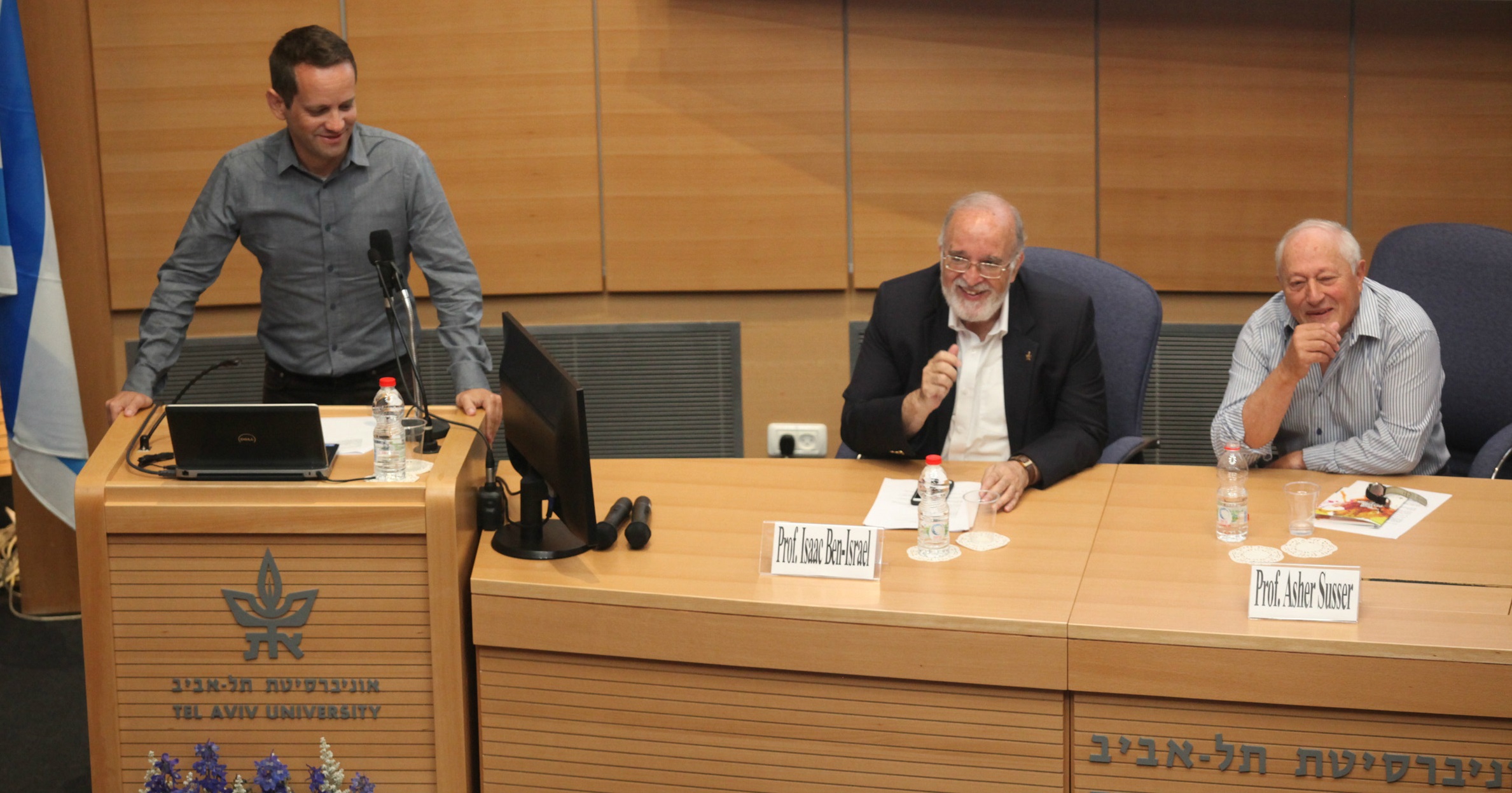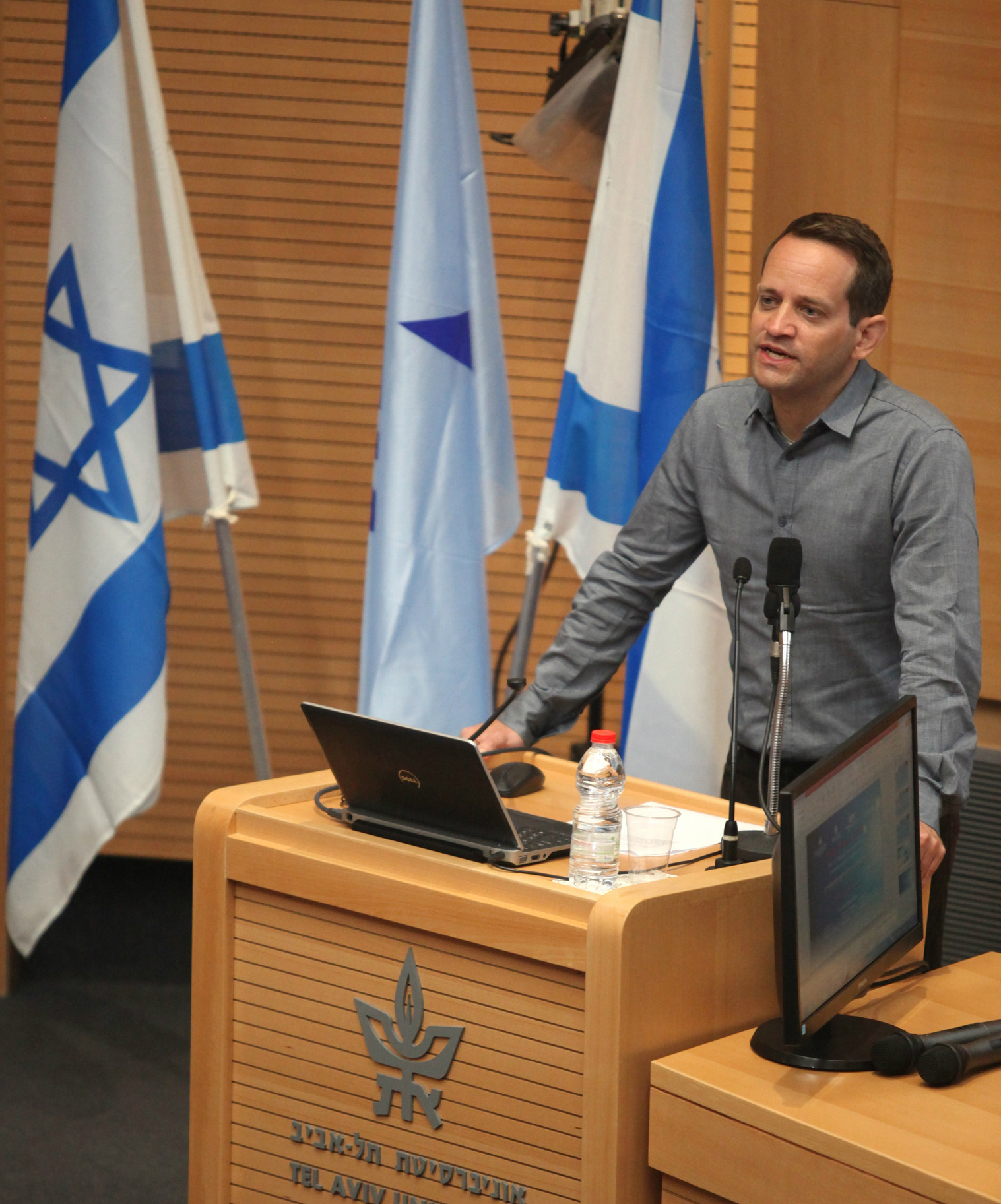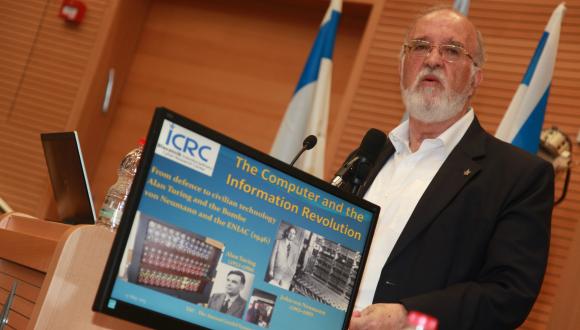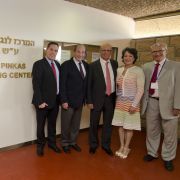BOG 2015: Annual John Gandel Symposium Tackles ISIS, the Global Cyber Threat and European Homeland Security
TAU Governors and friends gathered in the newly-inaugurated Raya and Josef Jaglom Auditorium for the 11th Annual John Gandel Symposium on the Middle East. This year’s panelists were three of the University’s top scholars in their respective fields – Major General (Ret.) Prof. Isaac Ben-Israel in cyber security, Prof. Asher Susser in Middle Eastern studies, and Dr. Uriya Shavit in Arabic and Islamic studies.
Opening greetings were given by Avi Armoni, a representative of John Gandel of Australia, the benefactor of this popular yearly event. “John Gandel is proud to be associated with such a world-class university that integrates cutting-edge science with the deepest level of philosophy, social sciences and arts – and all in a climate of excellence,” said Armoni.
Chairing the symposium was Prof. Ben-Israel, Head of the Yuval Ne’eman Workshop for Science, Technology and Security and Director of the Blavatnik Interdisciplinary Cyber Research Center, both at TAU, and Chairman of the Israel Space Agency.

The three panelists at the Gandel Symposium. From left: Dr. Uriya Shavit, Prof. Isaac Ben-Israel and Prof. Asher Susser Photo: Israel Hadari
The emerging cyber challenge
Prof. Israel commenced his talk with a brief history of major cyber-attacks – the first of which took place in 2007 in Estonia. Having foreseen this happening, said Prof. Ben-Israel, TAU scholars already began researching the cyber threat in 2003. Later, as the founding director of the Israel National Cyber Bureau, Prof. Ben-Israel recommended setting two key objectives: positioning Israel as one of the top five global powers in cyber expertise by 2015 and maintaining Israel’s standing as an information technology development hub with powerful cyber capabilities. Prof. Ben-Israel said that these objectives have been largely met, with Israel in a strong position for further increasing both its current 10% share in the global cyber security market and 14% share in the global cyber R&D arena. This national endeavor is being reinforced by the high-level research produced at the TAU Blavatnik Interdisciplinary Cyber Research Center established on campus last year.
The evolution of ISIS
The next panelist to speak was Prof. Asher Susser, an audience favorite at the Gandel Symposium since its launch in 2004. Former Director of TAU’s Dayan Center for Middle Eastern and African History, Susser outlined the key points that have led to the current, unprecedented situation of internal disintegration of key Arab states. He mainly attributed this to the declining socio-economic situation in much of the Arab world, which is being exacerbated by a dramatic and unsustainable population growth. This crisis, he said, is a result of the great failure of the Arab nationalist movement of the 20th century – the aim of which was to secularize the Arab world – and the subsequent rise of the Islamist radicalism that we are witnessing today.
Distinguishing between Sunni and Shiite radicalism, Prof. Susser explained that both dogmas have had a political impact that is beneficial to Iran – the most important Shiite country – and that is less advantageous for the rest of the Arab world. Indeed, he continued, Iran has emerged as the biggest winner of Middle East upheaval – an unintended consequence of the US-led 2003 Iraq war. Prof. Susser than briefly described the rise of the Islamic State – or ISIS – which began as Al Qaeda in Iraq and then expanded to Syria at the start of the Syrian civil war. He ended the talk with a brief examination of US foreign policy in the region vis-à-vis Iran, summizing that whereas the US increasingly views Iran as a partner in the running of the future Middle East, Israel, Saudi Arabia and other Sunni states see Iran as the problem – and not the partner.
Radical Islam through a homeland security lens

The final speaker was Dr. Uriya Shavit of the Department of Arabic and Islamic Studies, Entin Faculty of Humanities, who presented a more sociological perspective on the rise of radical Islam in terms of European and US homeland security issues. He gave a brief account of the key similarities among radical groups such as ISIS and Al Qaeda and discussed the complexities of combating radical Islam in Europe. These include the vicious cycle of antagonism and radicalization among Europe’s young Muslims, and the need to balance between fighting radical Islam on the one hand and maintaining democratic liberties on the other. Dr. Shavit also spoke of the impact that Europe’s Muslim minority has had on European cultural identity, and the intertwined future of religious freedoms among Europe’s Jewish and Muslim populations.






